Welcome to the Employer Profile Page of Lincolnshire County Council. Here you can see the key data, learn about the culture and meet the managers of the organisation before applying for a job in either its children’s and adults’ social work departments.

Alongside making a difference to the lives of families in Lincolnshire, we are sharing best practice and driving innovation as an improvement partner to other authorities. Our people are at the heart of this progress and our work is in changing lives. This is why we make sure our people have access to the best development opportunities. If you share our passion for making a difference to children, young people and families, we would be delighted for you to join our teams. Click the links below to learn more about services in adults’ and children’s services.
Adults’ Services
 We support:
We support:
- older people
- people with learning disabilities
- people with physical disabilities and sensory impairment
- people with mental health needs
We are responsible for ensuring the most vulnerable adults in our community and their family/informal carers are kept safe. We are also responsible for providing them with support that meets their needs.
As with all local authorities, we face challenges, but we are proud that we have continued to provide good quality services to the people of Lincolnshire. In fact, the budget for adult care has grown to ensure vital services are protected for our elderly population. We don’t rest on our laurels however and continue to strive for more creative ways of improving services and relationships with other partners, such as the NHS and care providers.

Lincolnshire is a big place, so we have teams across the county all focused on working with their local communities. Our dedicated teams work with adults of all ages to make life better, support people through challenges and safeguard the vulnerable members of those communities.
Wherever they are based, our teams are close knit groups that help and support each other. They are made up of a range of professional disciplines, each bringing a wealth of skills and experiences. Click here to read more.
 Recognising your strengths:
Recognising your strengths:
We want to support people to recognise their own strengths so that they can be active members of their communities and have ownership of their health and care.
We want to empower people to be confident in making choices about their own care, taking control of their health needs and being part of their community, and to help people get the most from life.
Children’s Services

We, at Lincolnshire, have a wide range of specialist teams. Our social workers are based across the county, and family assessment and support teams sit in each locality area within the county.
Social workers are responsible for child-in-need, child protection and court work, and also work with children whose plans are in long-term foster care and adoption. We also have a dedicated team working with children with disabilities, and a Future4Me team dedicated to supporting young people at risk of homelessness, criminalisation and exploitation.
We work with employees to help them find the best base for them. Scroll down to learn more.

A collaborative and restorative approach to care
We, at Lincolnshire, were an early adopter of Signs of Safety.
The practice model is an innovative, strengths-based, solution-focused approach to working with families created by Andrew Turnell and Steve Edwards.
Signs of Safety supports practitioners to recognise safety, strengths, risks and harm. The practice model allows practitioners to work with families in a way that recognises, honours and promotes the strengths of the family and their networks.
The aim is to build safety around their children, whether the children are cared for by their parents, by kinship carers or by other carers outside of their family.
The practice model is underpinned by a restorative practice approach, and our assessments, plans, supervisions, meetings and panels are framed using the Signs of Safety approach.
We hold regular Signs of Safety training in Lincolnshire and have ‘Signs of Safety leads’ throughout the service to help support new starters who may be less familiar with the approach. Our aim is to continue to develop practice for those who are looking to grow their career here.
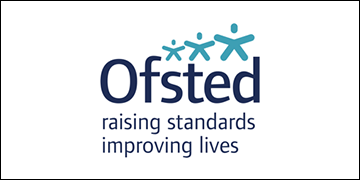
“I am pleased and proud that the hard work and commitment of the teams in Lincolnshire and the fantastic work they do every day to protect and support children and families has been recognised within this inspection and is reflected in the outstanding Ofsted judgment,” says Heather Sandy, executive director of Lincolnshire County Council’s children’s services.
Below is an extract from the 2023 Ofsted Report:
“Lincolnshire continues to provide outstanding services for vulnerable children and their families. Children and families have benefited from leaders prioritising and investing in services, strengthening the range and offer of support.
Leaders have enhanced services in areas identified for improvement at the last inspection in 2019 and further developed support to children who need help and protection. Children and families have access to effective locally based early support services.”
Read more on their story here.
Lincolnshire County Council’s Ofsted report 2023.
Click here to read Lincolnshire County Council’s latest Ofsted report.
Our People
Victoria Butler - ASYE - children's services
“I love building relationships with children and their families and empowering them to reach their goals.” Keep reading here.
Nathan Cattle - social worker in the West Lindsay FAST team
“Social work is one of the most stressful jobs on the front line but the positives that we see day in day out make it all worthwhile because there are some real success stories,” Click here to keep reading.
Sanhaluk Downs - ASYE children's services
“I have never experienced this level of support. Everyone in the FAST team is very helpful.” Keep reading.
Our Support
In Lincolnshire, we care about our workforce and have a wealth of support in place for you as a social worker. We are constantly reviewing caseloads to ensure they remain manageable and as a Lincolnshire social worker, you can expect to be working with a variety of families and levels of intervention.
Our model of integrated support means that our social workers work alongside early help teams in all localities providing triangulated analysis and planning for our families. This co-working approach facilitates effective transition for families and workers when progress shows that intervention levels can be stepped down. It also serves to ensure coordinated support when the worries mean that interventions need to be stepped up.
Our social work team assistant pilot has now been implemented permanently having demonstrated clear success. These team assistants have a broad remit of support for practical tasks allowing practitioners to spend more of their time with families and children at the heart of what we do.
 Our conversational approach supports a different way of working with people in health and social care by allowing more proportionate interventions.
Our conversational approach supports a different way of working with people in health and social care by allowing more proportionate interventions.
Our Conversations focuses on what people want to tell us and what they want us to know, not just about what we want to ask them, which is why there are no service or needs-led questions. By listening to what’s working and what’s not from the persons view we can help people find out what might best support them.
This approach reduces the need to complete a more in-depth assessment that may be unnecessary, intrusive and delay the person getting the support they need. We still record conversations and a plan of action of who will do what and when.
We contact people again within two weeks to see how things are going and give further advice and support if needed. The conversations consider what people can do themselves and all of the resources and support that we can connect the person to, within their community and networks, in order to help them live their lives independently.
Not only has this approach improved outcomes for the people we work with, but it has empowered our staff to fully utilise the skills and knowledge they have to ensure people receive the right support at the right time. This has freed up time, reduced bureaucracy and gives our staff permission to work in an innovative way.
In Lincolnshire we are embracing the benefits that can be achieved from utilising technology to help people achieve their outcomes, maintain their independence and live the life they choose.
From fall detectors and alarm pendants to smart speakers and a myriad of new devices, technology has an important place in the future of adult social care.
We combine our strengths based ethos to inform, explore and support the people we work with to utilise technological solutions in their lives. This approach has enabled people to regain independence and have increased choice and control of their lives, all while remaining safe and achieving their goals.
 Adult care is in the business of people. People have challenges in their lives, but they also have success, strengths, aspirations and goals. The role of adult care is to understand who the people we work with are, what is important to them, what they aspire to be and what they want to change.
Adult care is in the business of people. People have challenges in their lives, but they also have success, strengths, aspirations and goals. The role of adult care is to understand who the people we work with are, what is important to them, what they aspire to be and what they want to change.
Our role is to build a relationship with people, understand what they wish to achieve and support them to have the best possible outcomes in their lives.
Our involvement isn’t about time spent, forms filled in or services commissioned. Our involvement is about making a difference to people’s lives by listening, empowering, understanding and working together to help them be active participants in their support.
 Recognising your strengths:
Recognising your strengths:
We want to support people to recognise their own strengths so that they can be active members of their communities and have ownership of their health and care.
We want to empower people to be confident in making choices about their own care, taking control of their health needs and being part of their community, and to help people get the most from life.
The world of adult social care is constantly evolving and changing, and we have to make sure we keep up.
We invest in our staff’s professional development to make sure you are supported to remain up to date with all the changes. But don’t just take our word for it; our staff say that our training, professional development opportunities and protected continuous professional development time are one of the most attractive things about working for Lincolnshire County Council. Click here to keep reading.
We are a county-wide team of 17 social workers that are part of Family Adoption Links – a regional adoption agency incorporating Lincolnshire and Rutland, North Lincolnshire, Leicestershire, Leicester City and Northamptonshire Children’s Trust.
We work alongside the FAST team, twin tracking all children who have a plan of adoption to ensure the process is completed at the earliest stage. The aim is to ensure that children can be placed in a safe and secure family as soon as possible following a court decision. The team are then responsible for the life story book, later in life letter and ‘letterbox’ arrangements.
Our supervising social worker (SSW) team is responsible for the recruitment, preparation / training, and assessment of prospective adopters in line with the regulations. Our team complete the permanence assessment reports and accompany adopters to the adoption panel. They remain are involved in supporting adoptive families until the adoption order is made. Our team also complete stepparent adoptions.
Our adoption/special guardianship order (SGO) support team is involved in assessing post adoption/SGO support needs, delivering therapies either through the team or through the adoption support fund, running support groups for adopters/SGO carers, and activities/groups for adopted/SGO children.
Our team manages the birth records counselling service, the ‘letterbox’ for adoptive families, newsletters, and training opportunities for adopters and SGO carers.
We have two children in care teams that are based in Lincoln and Sleaford.
Our social workers support children and young people who have been accommodated under Section 20 or where care orders have been granted and support those children in private fostering arrangements. We also work with unaccompanied children seeking asylum.
Integral to our work is facilitating continued work with of the families we support. Social workers operate within the Public Law Outline Process, which means they can discharge a care order when children / a young person returns home or is looking at special guardianship orders.
They are also involved in court work, applications for secure welfare orders and deprivation of liberty matters.
Signs of Safety, restorative practice and social pedagogy are important models incorporated in our work. Both teams have a life story worker who work very hard to create life story books for children in our care.
Our children with disabilities (CWD) social work team is a county-wide but based in Lincoln and Sleaford. The team is responsible for the assessment of children and young people, aged between 0-18 years, that have severe and profound disabilities through child in need, child protection, children in care and court work.
Our head of service is responsible for special education needs and disability (SEND) and provides the strategic lead while the team manager is responsible for managing the practice supervisors, and social workers.
The team works closely with the SEND service through the educational health and care plan process.
There are four of us that provide out-of-hours cover. We are the first point of contact for members of the public and professionals outside of normal office hours. We are responsible for the identification, assessment, and care planning required to meet the needs of children and young people who need an emergency service that cannot wait until the next normal working day.
We assess the situation and determine appropriate courses of action. The aim of the service is to achieve a safe and practical outcome until daytime services are available.
We have eight locality FAST teams based across the county in Lincoln, Louth, Horncastle, Gainsborough, Grantham, Spalding, Boston and North Hykeham. They are responsible for child in need, child protection and court work.
Our teams are led by a team manager who line manages practice supervisors. The practice supervisors in turn, supervise the social workers in the team and social work apprentices. There are four locality heads of service who provide leadership to the locality social work and early help teams.
Our children’s social care screening team comprises social work advanced practitioners and practice supervisors. Our team makes decisions about next actions required on safeguarding concerns.
These concerns are reported to the customer service centre by members of the public and agencies that have worries about children in Lincolnshire. They work closely with our early help colleagues who are also within our integrated front door.
Our fostering social workers are known as supervising social workers (SSW).
This is a key position that brings together children and young people in care. Our SSW act as a link between foster carers and children’s social workers, and they are there to support the child/young person by providing a placement that can meet their needs.
Our SSW team is vital in helping us secure a sufficient number of trained mainstream foster carers.
As well as mainstream carers, our SSWs also carry out assessments of ‘kinship carers’ and are instrumental in completing both Regulation 24 assessments and special guardianship court reports.
Our SSWs recruit, assess, support and develop foster carers to be able to meet the needs of our children in care. Our SSWs rely on support from all social workers to be part of the team around any foster placement.
Our SSWs carry out stringent assessments, including ‘Form F’ assessments, to recognised standards. SSWs also present reports to panel that prove their commitment to safeguarding and promoting the welfare of children. The fostering duty desk are also a key part of children’s services, and are responsible for managing and overseeing placement requests.
Our foster carers are a valuable part of the team around the child. Our way of keeping connected with fostering families is through support and supervision, and a monthly newsletter, which is sent to all fostering households and all teams across children’s services.
Our residential care teams look after the children and young people who live in our homes.
We have two short breaks homes, one in Lincoln and one in Boston for children with disabilities. We also have a residential home caring for up to 11 children who have disabilities in Grantham.
We have three homes (in Gainsborough, Sleaford and Spalding) that care for up six children and young people each. The children are carefully matched to their homes and can stay until just beyond their 18th birthday.
In addition, our secure children’s home in Sleaford looks after up to 12 young people and our newest home in Lincoln – Robin House – has opened. Robin House has four beds and is aimed at children aged from 6 years up to their 16th birthday.
We are in the process of expanding our residential estate with a further home in Louth under construction and due to open in 2024.
Future4Me (F4M) is part of our early help service and was established across Lincolnshire in February 2019. Our team works with a 14-18-year-old cohort of young people who are at risk of homelessness, criminalisation, exploitation or who are being accommodated by the local authority.
Our case-holding staff members are located within the localities to promote a community focus and locality relationships with extended support from the central hub team.
Within this hub, additional posts have been created, including clinical psychologists, assistant psychologists, a joint diversionary panel co-ordinator, a youth housing officer and a child exploitation officer.
F4M also comprises a community & intervention team together with commissioned specialist services including a speech & language therapist and CAMHS practitioners.
Our community & interventions staff members have a focus on positive activities for young people which can be delivered within communities or as bespoke one-to-one intervention.
The restoring family relationship team, which supports 16- and 17-year-olds at risk of homelessness, was added to F4M in December 2020.
Employee Benefits
We offer employees a competitive salary, generous annual leave, pension benefits and pay annual professional fees on behalf of employees.
In additional to these employee benefits, all social workers receive case supervision and group supervision sessions held in all of our teams.
Practitioners can access our online learning management system.
We also offer a range of lifestyle benefits and believe that wellbeing and a good work-life balance are an integral part of our offer. We have a comprehensive set of policies aimed at supporting an employee’s work-life balance. We do that by providing agile working, homeworking and protected CPD time. Click the Employee Benefits Brochure to learn more.
 Our wellbeing strategy is structured into priorities, designed to ensure staff members are happy in their roles. These priority areas in employee health and wellness are listed below:
Our wellbeing strategy is structured into priorities, designed to ensure staff members are happy in their roles. These priority areas in employee health and wellness are listed below:
Personal wellbeing and resilience, work demands, change management, employee voice, effective leadership, and positive relationships.
Additional support can be found in the Employed Counselling Service, Lincolnshire County Council Health and Wellbeing Offer and Mental Health First Aid Scheme. Click here for more.
We offer a range of gym membership options. They include:
- Deans Gym Offer
- Active Nation Gym Offer
- CSSC Leisure Membership
- Energie Fitness Corporate Offer
- SimplyHealth

The salaries are expressed as the full time equivalents and per annum
£31,099 – £38,296
Continuous professional development allows social workers to keep on refreshing their knowledge of practice.

Here are some of the resources that we offer:
Our adults’ services have free access to Community Care’s Inform – a subscription website helping professionals working with children and young people and adults make evidence, decisions, and assessments. practice. Staff also have access to other practice resources for adults which brings together academic research, practice expertise and the experiences of people accessing services.
Our children’s services teams have access to practice resources which brings together academic research, practice expertise and the experiences of people accessing services. This information is used to develop a range of resources and learning opportunities, as well as delivering tailored services, expertise and training.
- Lincs2Learn is an online resource bank allowing social workers to book a broad range of learning and development courses as they progress in their careers.
- Our adults’ services have free access to Community Care’s Inform – a subscription website helping professionals working with children and young people and adults make, and evidence, decisions and assessments. practice.

Photo: Fotolia/Corepics
We aim to support agile and homeworking as and when it suits employees’ needs.
Depending on your job role, there is a comprehensive set of policies aimed at supporting employees’ work-life balance and a range of flexible working options.
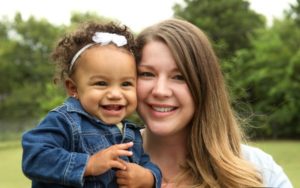
Photo: fotolia/digitalskillet1
There is a range of flexible working options, depending on your job role and circumstances, including maternity leave, paternity leave, dependency leave, and adoption leave.
In adults and children’s services, annual leave entitlement is between 28 and 33 days, going up to 40 days, and depends on job title and length of service.
You can also buy additional leave.
 Children’s services offer a competitive salary and a 15% annual attraction and retention bonus (paid monthly) to our social workers in our FAST teams.
Children’s services offer a competitive salary and a 15% annual attraction and retention bonus (paid monthly) to our social workers in our FAST teams.
Social workers in our children in care team and the foster team receive a 7% annual attraction and retention bonus.
We’ll also pay for annual Social Work England registration for our social workers. Adults services staff receive a competitive salary and staff working within our hospital teams receive a 15% annual attraction and retention bonus (paid monthly) and we also pay for your annual Social Work England registration.
All staff undertaking work related travel receive reimbursement at 44 pence per mile.
 Our social workers can access a range of benefits to get them to and from work. They include:
Our social workers can access a range of benefits to get them to and from work. They include:
- Free parking
- Electric car scheme
- Cycle 2 Work Scheme
- Bus Travel Scheme
- Sky Park Airport Car Parking
- Lincoln BIG Parking
- Car loan and lease scheme
- Paid mileage
 There is a range of retail and restaurant benefits available to our social workers through the Sodexo Benefits System.
There is a range of retail and restaurant benefits available to our social workers through the Sodexo Benefits System.
They include discounts on groceries, cinema tickets and high street stores.
Social Work Careers
Education and Learning

Our 12-month ASYE programme has been developed to consolidate the skills and knowledge that newly qualified social workers have gained from their degree course within their first year in practice.
The programme counts towards the requirement for continuing professional development for social work registration with Social Work England.
Our ASYE programme was established in 2012, and is reviewed and refreshed on an annual basis to keep it relevant.
A range of internal and external professionals contribute to the programme and staff receive training around several areas including court skills, understanding service areas, procedures, processes, equality and diversity issues, and many more.
Social workers on our ASYE will receive professional supervision which will be provided by the practice consultant. Mentoring is also encouraged as needed, and our ASYE also includes the social worker receiving a learning agreement.
The agreement identifies learning and development opportunities, supervision, workload and a personal development plan which focuses on key areas for learning and development in the first year of practice.
For further information on our ASYE programme, contact learning & development officer Kieran.Fuller@lincolnshire.gov.uk

In partnership with the University of Lincoln, we run a social work apprenticeship programme.
Our next cohort is busy working in their children’s services placements while also studying for their social work degrees.
We will be starting the recruitment process again in early 2023. More information about the programme can be found here.

Credit: Ruff Jane Reyes on Unsplash
Our 14-month Step Up to Social Work programme offers intensive, hands-on experience of working in a real-life social work roles through placements in a local authority.
Once you’ve successfully completed the course, you’ll be awarded a Postgraduate Diploma in Social Work, enabling you to register and practice as a social worker.
This is a unique opportunity to earn while you learn. The Department for Education provides funding via a tax-free bursary payment of £19,833, over the duration of the programme, and payment of university fees for successful applicants.
This will allow you to change or start a new career in social work and to continue to pay your bills and fund your living costs while you are studying.
The programme runs once every two years, depending on government funding. It is predicted that the next recruitment window will be around February 2023.
Lincolnshire County Council is part of the East Midlands Partnership.
 Bridging the Gap is a programme designed to give social workers the tools, confidence, and knowledge to take their career to the next level.
Bridging the Gap is a programme designed to give social workers the tools, confidence, and knowledge to take their career to the next level.
Progress in your career, means progress in our practice and we help social workers make the jump from level 2 to advanced practitioners.
Social workers are given the support and resources they need to enhance their skills throughout the course. They build a personal development plan and are encouraged to stop, think and reflect on their practice, strengths and motivators, and how they fit with the wider context of our work.
The course concludes with a project outlining suggestions for practice improvements in their team, using research, data and reasoning to support their analysis.
Our news

Photo: Rido/Fotolia
A change in Gemma’s health and circumstances meant she needed a role with more defined hours and flexibility.
Gemma had previously worked in the care sector and saw that joining LCC’s adult services allowed her to continue working in social care while meeting her own personal and professional goals and ambitions.
 Ed Clayton, practice advisor and Ela, who works as an improvement practice lead and is an expert by experience, featured on the ‘It’s All About People Pod recently.
Ed Clayton, practice advisor and Ela, who works as an improvement practice lead and is an expert by experience, featured on the ‘It’s All About People Pod recently.
They both shared compelling accounts of how they have been working to increase understanding of using anti-racist practice within the service. Click here to listen to the full story.

Ed Clayton, children’s social worker and practice adviser, and Kim Khajehnoori, co-chair of staff support group called ‘Identify’ (pictured), delivered a series of full-day anti-racist practice development sessions for our practitioners. Click here to read the full story.
Life in Lincolnshire
LIVING IN LINCOLNSHIRE

“You’re always going to feel nervous moving 200 miles to somewhere new. But any anxieties I had have been completely allayed!
“I’m Amanda, a supervising social worker at Lincolnshire County Council and I’ve been part of the team since September 2017.
Getting around Lincolnshire is easy when you know how. Click on my story and the links below to find out more.
Click on the social media links below to learn more about Lincolnshire County Council.
Transport in and around Lincolnshire

East Midlands Airport is a stone’s throw from the county’s borders.
If you are coming to Lincoln from further afield, Humberside Airport is a 45-minute drive away and East Midlands Airport is a one-hour-and-10-minute drive away. Both are nearby hubs for domestic and international flights.

While Lincolnshire does not have a major motorway, there are plenty of easy routes into the county from whichever direction you travel.
The county is lucky to have one of the most important road networks flowing through sections of Lincolnshire – the A1. The A1 is a key route for many businesses but is also ideal for northern or southern visitors to use before navigating the county’s many A roads.
 Travelling to Lincoln by train is one of the easiest and quickest options. The city is directly connected to London by rail, and the journey from King’s Cross station takes just a couple of hours.
Travelling to Lincoln by train is one of the easiest and quickest options. The city is directly connected to London by rail, and the journey from King’s Cross station takes just a couple of hours.
Lincoln is served by three rail companies: East Midlands Trains, Northern Rail and East Coast. All trains arrive at Lincoln Central station, which is in the south of the city centre.
Regular direct trains travel to Lincoln from Leicester, Peterborough, Nottingham, Sheffield, and Doncaster.
Visitors are able to get off at Grantham Station and then pick up another train to explore the rest of the county. Alternatively, visitors are able to hop off at Peterborough, in nearby Cambridgeshire, and then catch the Lincoln train, which stops off at Spalding and Sleaford.
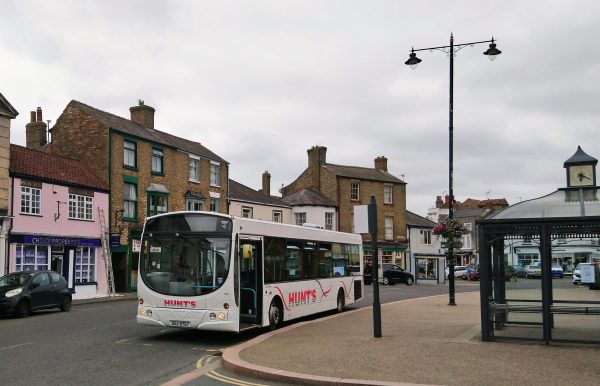
The county is served by several major bus companies. National Express runs a regular bus from London to Skegness and there are numerous routes to other Lincolnshire towns.
Map of Lincolnshire
Adults' social media
Children's social media
Find Out More
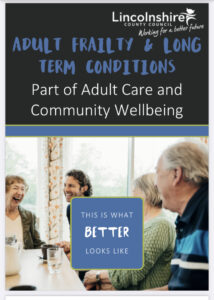
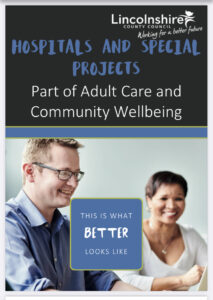
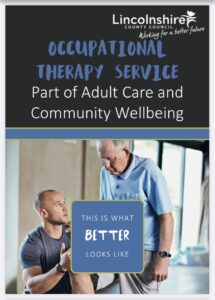
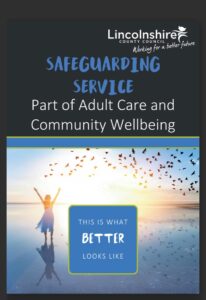

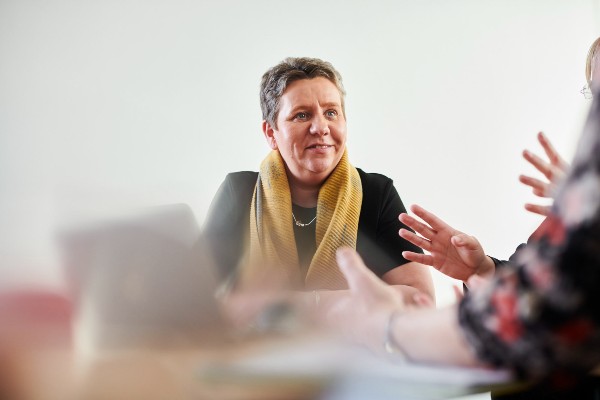


 Facebook
Facebook X
X LinkedIn
LinkedIn Instagram
Instagram
Comments are closed.